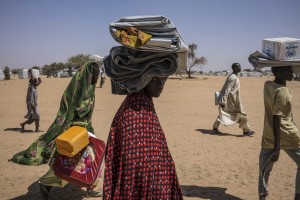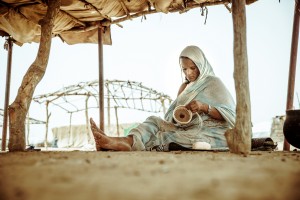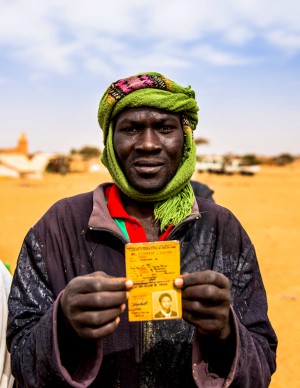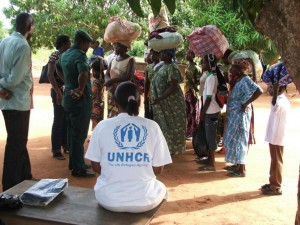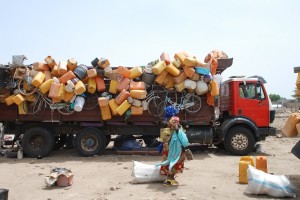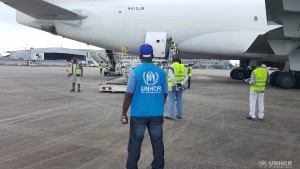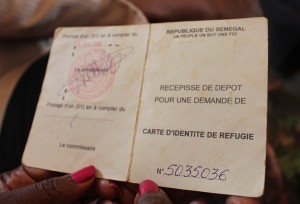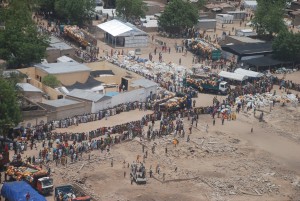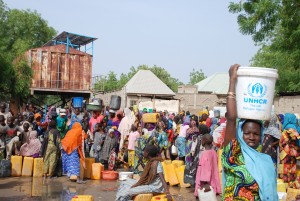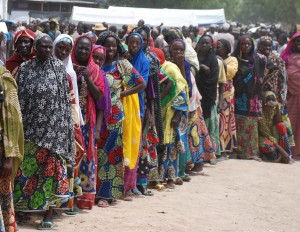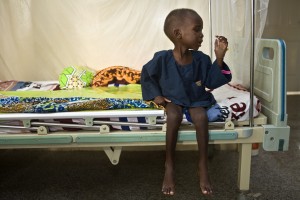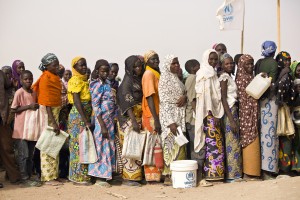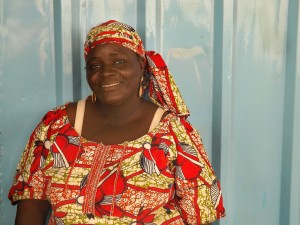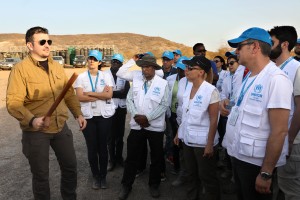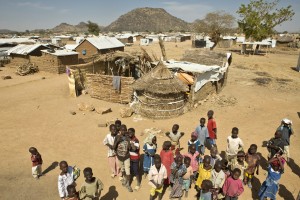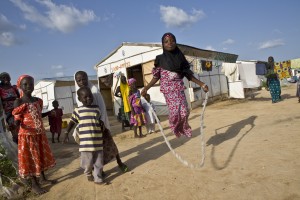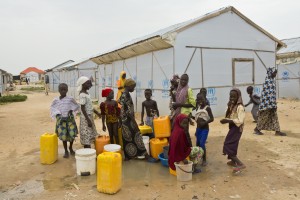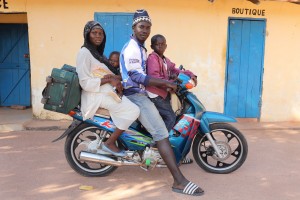Nigerian refugees move from volatile border in Cameroon
UNHCR teams are registering the new arrivals in Minawao camp and providing them with assistance
YAOUNDE, CAMEROON, 21 July 2015 (UNHCR) – Weeks after the elections in Nigeria, violence and attacks continue to affect population movements in Nigeria and neighbouring countries. In Cameroon’s remote Far North Region, a steady flow of Nigerian refugees are moving from the volatile Nigeria-Cameroon border area and seeking shelter some 100 kilometres inland at the Minawao camp, which is run by UNHCR and its partners.
UNHCR field staff say dozens of families, or an average of about 100 people every day, are registering at the camp, which was opened in July 2013. Its population has risen from about 30,000 late last year to approximately 44,000 today. The arrivals at the camp are mainly Nigerian nationals who had earlier fled to Cameroon to escape violence in north-east Nigeria but had preferred to stay very near the border – hoping for a quick return home. The refugees said they had fled militant attacks in Nigeria’s Borno state.
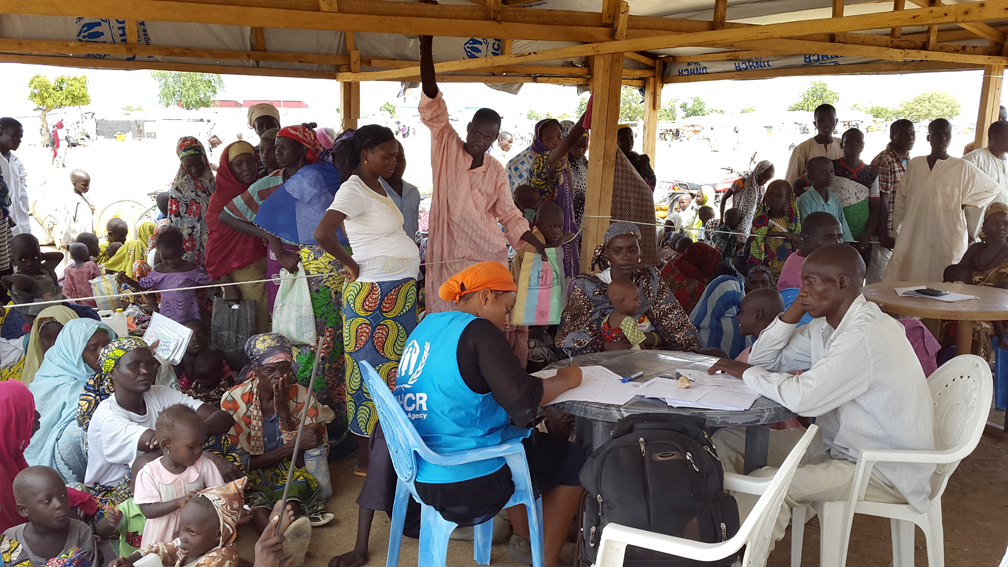
UNHCR staff registers the newly arrived Nigerian refugees in Minawao camp. UNHCR / DJERASSEM MBAIOREM
In recent weeks, there have been attacks and clashes on Cameroon territory, including a suicide bombing on July 12, the first such attack in Cameroon, on the far-northern town of Fotokol. As part of its response to this unrest, the government of Cameroon has begun registering Nigerian refugees in the immediate border area. UNHCR field staff reported that this registration process provoked fear among some refugees that they might be returned to Nigeria against their will. But UNHCR and the government are in the process of consulting the refugees in the border area about where they want to go – some may opt to return to safe areas in Nigeria, while others may want to move to the Minawao camp. This process will continue over the coming days and weeks.
Some arrivals said they had run out of food in their first place of refuge in the immediate border area and wanted to benefit from food distributions in Minawao. Many of the new arrivals at the Minawao camp are being temporarily sheltered in a tarpaulin-construction school area, which is currently closed for the summer break. The school is due to reopen in September but there is a shortage of wood to build new community or family shelters for the new arrivals.
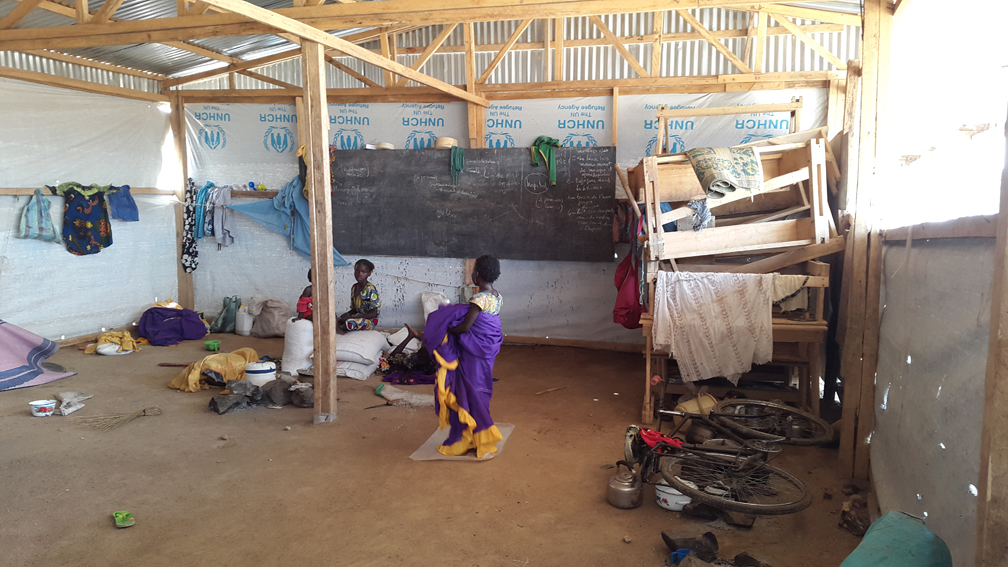
Many of the new arrivals in Minawao camp are temporarily staying in school classes since they are not currently being used by children during the summer break. UNHCR / DJERASSEM MBAIOREM
The camp is in a relatively arid area; wood for building shelters has to be transported from the forested regions in southern Cameroon, which is at least two days trucking distance away. “We have always had a problem with wood supplies,” one of the camp managers said: “and then when we do receive wood, we sometimes also face a shortage of nails to erect the shelters.”
Minawao camp is located within sight of the dramatic Mandara mountain range that rises up to straddle the border between Cameroon and Nigeria. The mountains are one of the areas where the Nigerian insurgents are believed to have hideouts, refugees familiar with the area said. Soldiers from allied regional military forces – mainly from the armies of Nigeria, Chad, Niger and Cameroon – have been mounting joint operations against the insurgents for several months.These actions are across large areas of west and central Africa. The military operations are reported to have dispersed some of the insurgents. But they have not stopped all insurgent activity. UNHCR has limited access in the Far North Region for security reasons, but estimates the number of unregistered refugees in the area to be some 12,000. The Cameroonian authorities say this number may be as high as 17,000.
In a separate development in southern Niger’s Diffa region, authorities report the arrival of some 2,500 people from Nigeria in the past days following an attack by militants on the Nigerian town of Damassak early last week. The new arrivals are mainly women, children and older people; they arrived in the border villages of Chetimari and Gagamari, located 20 kilometres from Damassak. Niger authorities report that people continue to arrive – with 80 per cent Nigerian refugees and the remaining 20 per cent Niger returnees.
Some of the new arrivals had fled their homes last year after a first attack on Damassak and returned only recently. Some refugees are staying with the same host families they stayed with last year while others sleep in the open or in makeshift shelters. Most new arrivals said they prefer staying in Chetimari and Gagamari rather than the Sayam Forage refugee camp, further inland. They hope to return to Nigeria as soon as possible. Locals have been sharing their meagre resources with them, including water and food. UNHCR teams are unable to access the border area for security reasons.
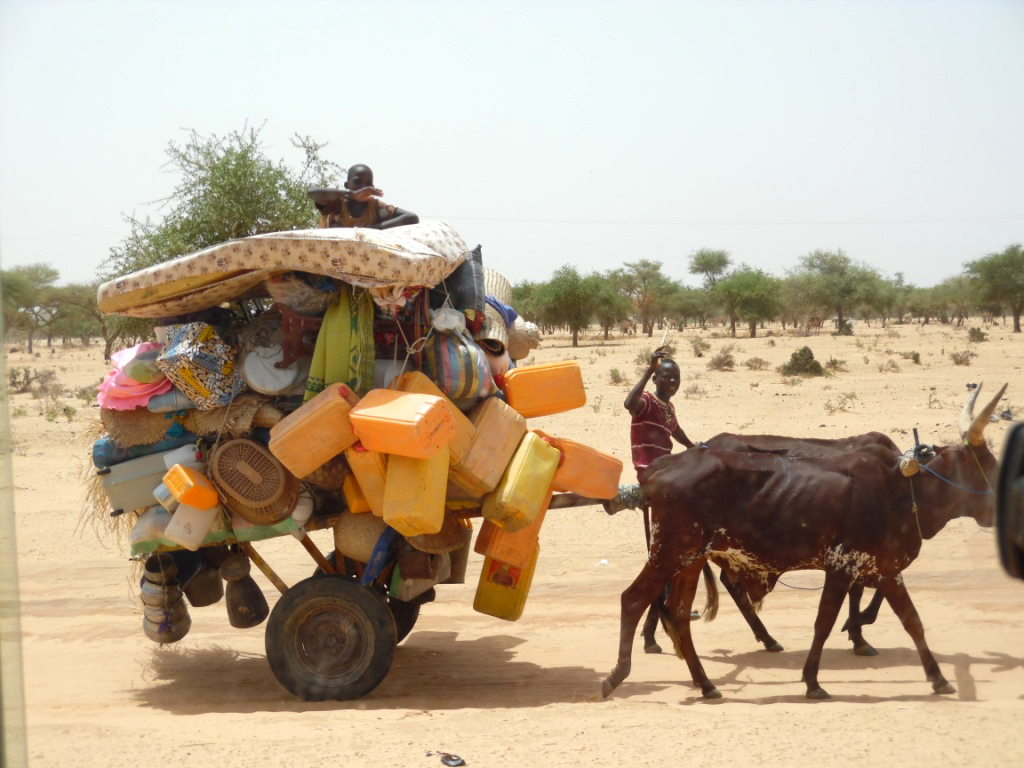
Nigerian refugee children arrive in Niger after fleeing attacks on the city of Damassak in northeastern Nigeria. They had time to take some belongings and food for some days but will soon need assistance. © IRC

Most of newly arrived refugees in Chetimari, Niger, are women and children. © IRC
More than 100,000 people have fled Nigeria and found refuge in Niger since mid-2013. The conflict has also displaced 18,400 Nigerians to Chad and left at least 1.5 million people displaced within Nigeria, mainly in Adamawa, Borno and Yobe states.
For more information on this topic, please contact:
In Geneva, Leo Dobbs, dobbs@unhcr.org, + 41 22 739 8394
In Dakar, Helene Caux, caux@unhcr.org, +221 77 333 1291
In Yaounde, Mark Doyle, doylem@unhcr.org, +237 691 141 217
In Niamey, Karl Steinacker, steinack@unhcr.org, + 227 92 19 31 46
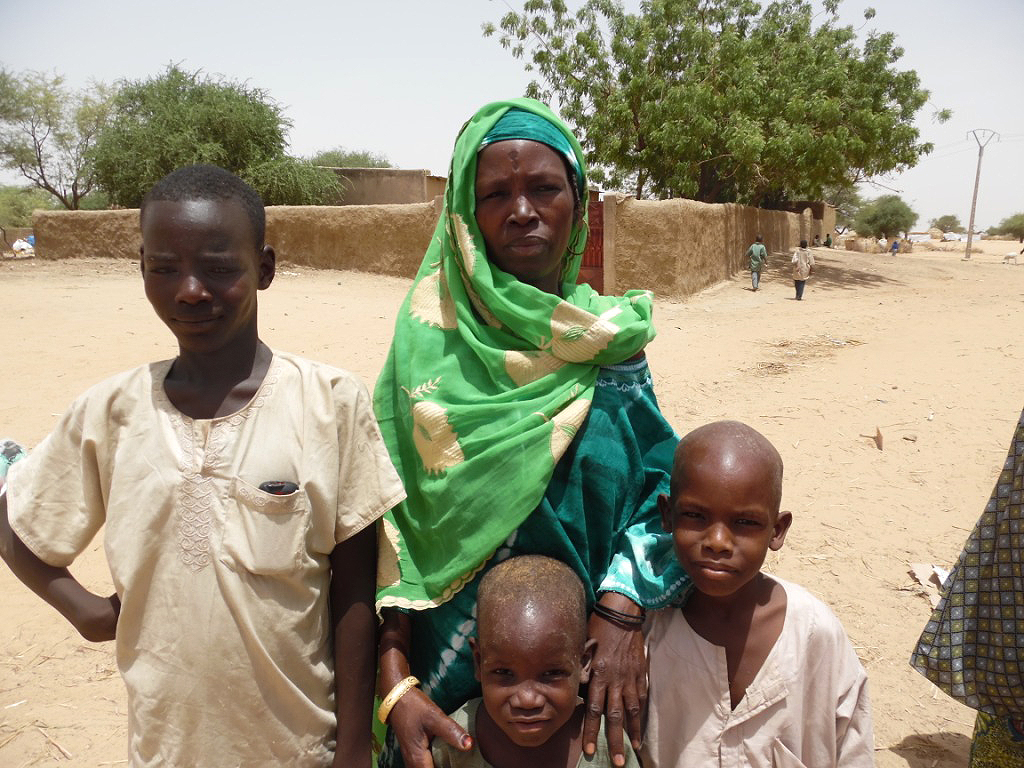
“My name is Ya Gaptia Kiari. I am 40 years-old and I fled my home in Damassak in Nigeria. It was attacked on Tuesday last week. It is the second time that I find refuge with my children in Chetimari, in Niger. We were warmly welcomed by the local inhabitants the first time we fled Nigeria some months ago so we came back here after last week’s attack. We feel secure here in Chetimari. We had returned earlier to Damassak after the authorities told us it was safe to come back, but to our surprise, the attacks started again. Everybody has left Damassak. My husband, my children and myself escaped by foot, we carried our luggage on our heads on our way to the border. Then we found a cart to transport our belongings. Thanks God, we did not have any problems while we were traveling for 20 kilometers between Damassak and Chetimari”. © IRC
